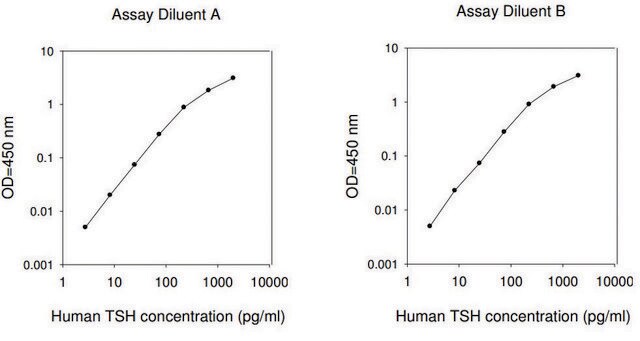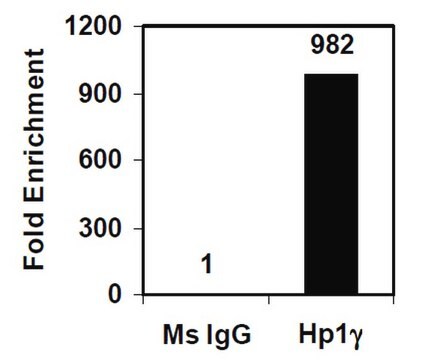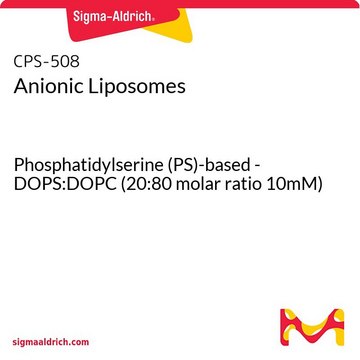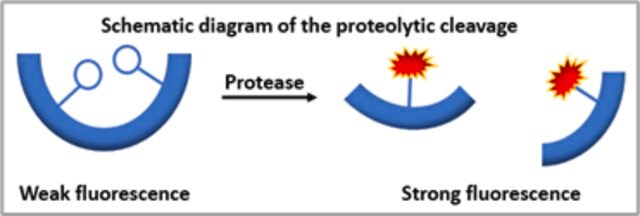CHP2NC
Imprint® Ultra Chromatin Immunoprecipitation Kit, Without Controls
ChIP kit for maximum sensitivity, compatible with Next-Gen sequencing
About This Item
Recommended Products
Quality Level
General description
Application
- Suitable for downstream applications
- Individual target characterization to genome-wide profiling techniques
- Characterization of signal transduction pathways
- Verification of ChIp-chIP and ChIP-seq data
Features and Benefits
- Use successfully CHiP′ed DNA associated with low abundance, medium, and highly expressed transcription factors, as well as histone modifications
- Greater capacity - can be used over a wide range of cell numbers ranging from 2-10 × 106
- Maximum sensitivity - capable of detecting low abundance transcription factors with as little as 2 × 106 cells
- Employs DNA-Blocked "Staph-Seq" for IP (immunoprecipitation), minimizing contaminating Staph A DNA in downstream ChIP-Seq applications.
Legal Information
Kit Components Only
- Sodium dodecyl sulfate solution, for molecular biology, 10% in 18 megohm water
- Monoclonal Anti-POLR2A antibody produced in mouse, clone 1F17, purified immunoglobulin, buffered aqueous solution
Kit Components Also Available Separately
- S6576ChIP Next Gen Seq Sepharose™SDS
- I8896IGEPAL® CA-630, for molecular biologySDS
- S5150Sodium chloride solution, 5 M in H2O, BioReagent, for molecular biology, suitable for cell cultureSDS
- W4502Water, Nuclease-Free Water, for Molecular BiologySDS
- I5006IgG from rabbit serum, reagent grade, ≥95% (SDS-PAGE), essentially salt-free, lyophilized powderSDS
- I5381IgG from mouse serum, reagent grade, ≥95% (SDS-PAGE), lyophilized powderSDS
- A7638Bovine Serum Albumin, lyophilized powder, essentially globulin free, ≥99% (agarose gel electrophoresis)SDS
- A84564-(2-Aminoethyl)benzenesulfonyl fluoride hydrochloride, ≥97.0% (HPLC)SDS
- D9156Deoxyribonucleic acid, single stranded from salmon testes, For hybridizationSDS
- M7023Anti-Mouse IgG (whole molecule) antibody produced in rabbit, IgG fraction of antiserum, buffered aqueous solutionSDS
- P8340Protease Inhibitor Cocktail, for use with mammalian cell and tissue extracts, DMSO solutionSDS
- R4642Ribonuclease A from bovine pancreas, (Solution of 50% glycerol, 10mM Tris-HCL pH 8.0)SDS
signalword
Danger
Hazard Classifications
Acute Tox. 4 Oral - Aquatic Acute 1 - Aquatic Chronic 1 - Eye Dam. 1 - Flam. Liq. 3 - Met. Corr. 1 - Ox. Liq. 1 - Resp. Sens. 1 - Skin Corr. 1B - STOT SE 3
target_organs
Central nervous system
Storage Class
5.1A - Strongly oxidizing hazardous materials
Certificates of Analysis (COA)
Search for Certificates of Analysis (COA) by entering the products Lot/Batch Number. Lot and Batch Numbers can be found on a product’s label following the words ‘Lot’ or ‘Batch’.
Already Own This Product?
Find documentation for the products that you have recently purchased in the Document Library.
Articles
Epigenetic modifications are thought to occur through two key interconnected processes—DNA methylation and the covalent modification of histones.
Protocols
Chromatin Immunoprecipitation qPCR for studying gene regulation across conditions.
Related Content
Protein and nucleic acid interaction reagents and resources for investing protein-RNA, protein-DNA, and protein-protein interactions and associated applications.
Our team of scientists has experience in all areas of research including Life Science, Material Science, Chemical Synthesis, Chromatography, Analytical and many others.
Contact Technical Service














